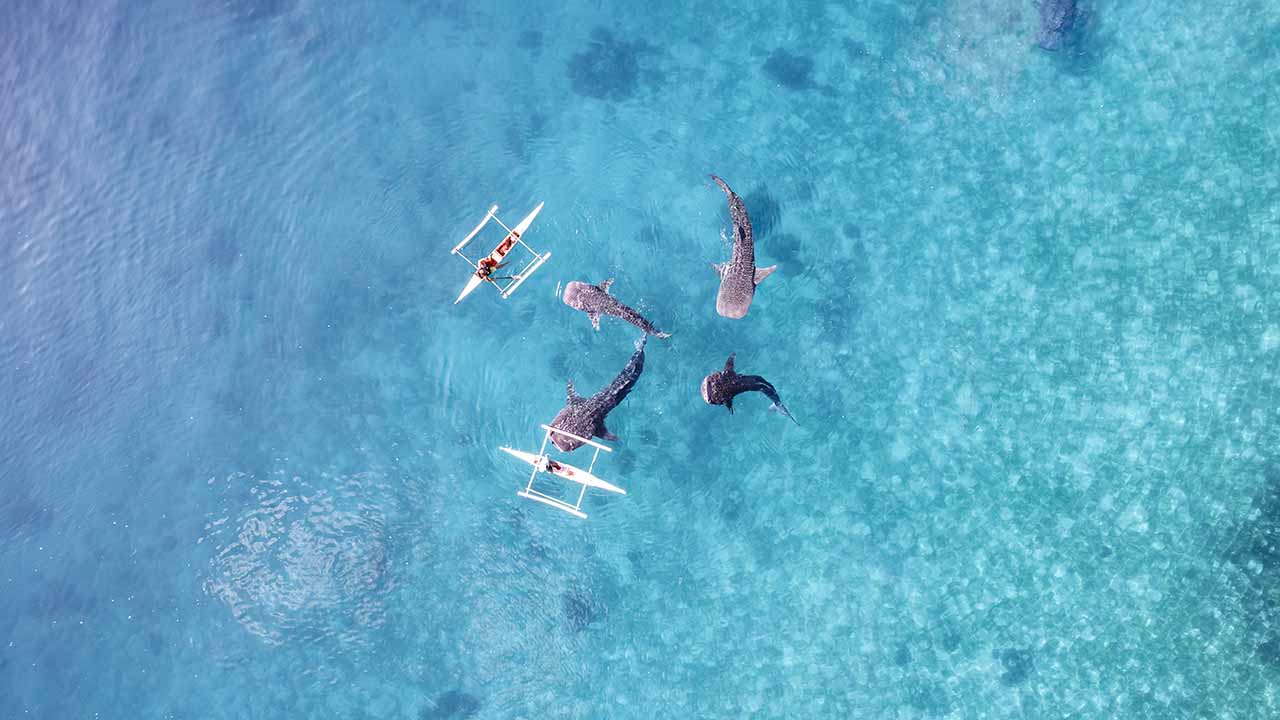Whale sharks, the largest fish in the ocean, are gentle giants that play a crucial role in marine ecosystems. However, they face numerous threats, including overfishing, habitat destruction, and climate change. In Saleh Bay, Indonesia, conservation efforts are essential to protect these magnificent creatures and their habitats. In this article, we will explore the importance of whale shark conservation, the threats they face, and how you can contribute to their protection.
The Importance of Whale Sharks
Whale sharks (Rhincodon typus) are filter feeders that primarily consume plankton, small fish, and other tiny marine organisms. By feeding on these organisms, they help maintain the balance of marine ecosystems. Their presence indicates a healthy ocean environment, making their conservation vital for the overall health of marine life.
- Ecosystem Balance: Whale sharks play a significant role in the marine food web. By consuming large quantities of plankton, they help regulate the population of these organisms, which can impact the entire ecosystem.
- Tourism and Economy: Whale sharks are a major attraction for eco-tourism in Saleh Bay. Tourists from around the world come to swim with these gentle giants, providing economic benefits to local communities. Sustainable tourism practices can help fund conservation efforts and support local economies.
- Cultural Significance: In many coastal communities, whale sharks hold cultural significance. They are often seen as symbols of strength and grace, and their presence is celebrated in local folklore and traditions.
Threats to Whale Sharks
Despite their importance, whale sharks face several threats that jeopardize their survival:
- Overfishing: Whale sharks are often targeted by fishermen for their meat, fins, and oil. This overfishing has led to significant declines in their populations. In some regions, they are caught accidentally in fishing nets, leading to injury or death.
- Habitat Destruction: Coastal development, pollution, and climate change threaten the habitats of whale sharks. These factors can disrupt their feeding grounds and breeding areas, making it difficult for them to thrive.
- Climate Change: Rising ocean temperatures and changing ocean currents can impact the availability of plankton, which is crucial for whale sharks’ survival. As their food sources diminish, their populations may decline.
Conservation Efforts in Saleh Bay
Local organizations and dive operators in Saleh Bay are actively involved in conservation efforts to protect whale sharks Sumbawa and their habitats. Here are some initiatives aimed at preserving these gentle giants:
- Research and Monitoring: Researchers conduct studies to track whale shark populations and understand their behavior. This data is essential for developing effective conservation strategies. By monitoring their movements and feeding patterns, scientists can identify critical habitats and migration routes.
- Community Engagement: Local communities are engaged in conservation efforts through education and awareness programs. By involving residents in conservation initiatives, the importance of protecting whale sharks is emphasized. Community members are often the first line of defense in protecting these creatures.
- Responsible Tourism: Many tour operators in Saleh Bay prioritize responsible tourism practices. They educate guests about whale sharks and their conservation needs, promoting sustainable interactions with these creatures. By choosing eco-friendly operators, tourists can support conservation efforts.
- Legislation and Protection: Governments and organizations are working to implement laws and regulations that protect whale sharks. This includes establishing marine protected areas where fishing is restricted, allowing whale sharks to thrive in their natural habitats.
How You Can Help
As a visitor to Saleh Bay, you can play a vital role in whale shark conservation. Here are some ways to contribute:
- Choose Responsible Tour Operators: Support operators that prioritize sustainability and conservation efforts. Your choice can make a significant impact on the local community and the environment.
- Participate in Conservation Programs: Join local initiatives focused on marine conservation, such as beach cleanups or educational workshops. Your involvement can help protect whale sharks and their habitat.
- Spread Awareness: Share your experiences and knowledge about whale sharks and conservation with friends and family. Raising awareness is key to protecting these incredible creatures.
- Donate to Conservation Organizations: Consider donating to local organizations that focus on whale shark conservation. Your contributions can help fund research, education, and conservation initiatives.
Whale shark conservation is essential for protecting these gentle giants and their habitats in Saleh Bay. By supporting local initiatives and choosing responsible tourism practices, you can contribute to the conservation of whale sharks and help ensure that future generations can enjoy the beauty of these magnificent creatures. Together, we can make a positive impact on the marine environment and protect the giants of Saleh Bay!
